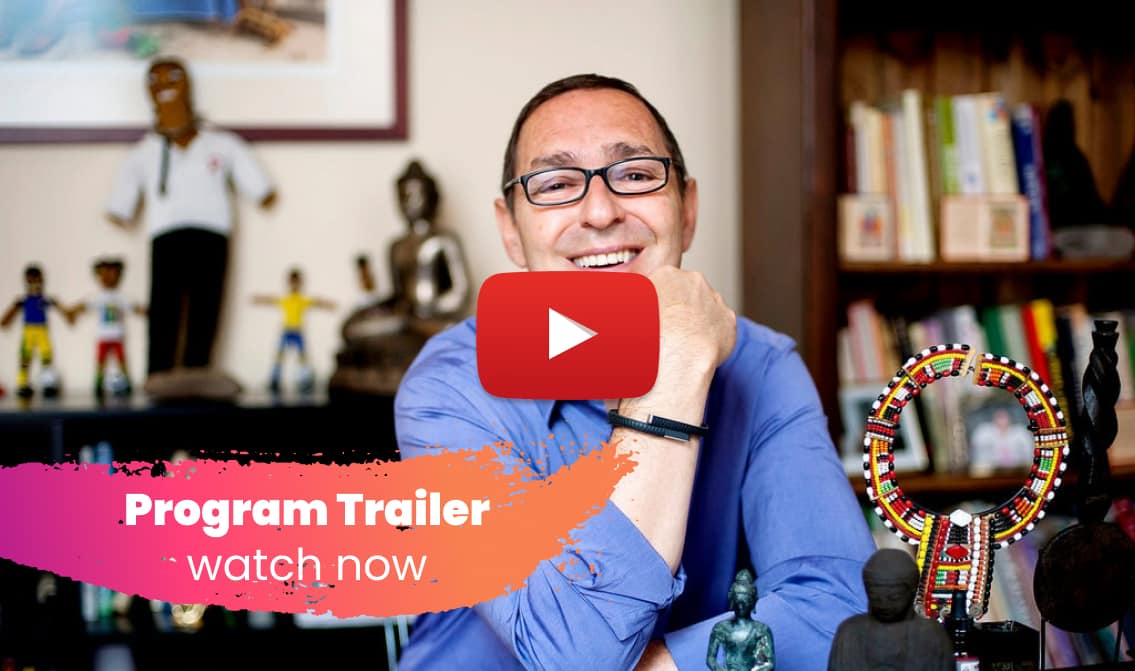Written by MasterHealth Staff
Jump To Section
Fatty foods have been wrongly demonized for the last 50 years, driven by Big Food’s marketing and government buy-in to the misguided assertion that eliminating fats would keep us healthy.
Unfortunately, when the fat was removed, it was replaced with refined sugars, carbohydrates, and processed foods which have led to epidemics of obesity and diabetes.
Healthy fats will help you feel energized, reduce food cravings, reduce brain fog and promote clearer thinking.
When you eat healthier fats, you can enjoy a bounty of benefits including stable, longer-lasting energy, fewer hunger highs and lows, a more efficient metabolism, clearer thinking, and more balanced moods – not to mention better hair, nails and skin.
Here are some healthy sources of fat to incorporate into your diet:
Animal fat sources
- Organic chicken with skin (dark meat)
- Grass-fed, grass-finished red meat
- Pastured pork
- Fatty cold-water fish
- Bone broths (check out our recipe for making chicken stock)
Plant fat sources
- Avocados
- Coconut
- Nuts and nut butter
- Seeds
- Dark chocolate
- Olives and olive oil
Try this delicious and energizing chocolate avocado smoothie that will deliver you a dose of healthy fats that will nourish you for hours!
Pouring and spreading fats
- Olive oil
- Flax oil
- Hemp oil
- Nut oils
- Nut butters
- MCT oil
- Cacao butter
- Dairy butter
- Ghee
Healthy cooking fats
- Animal fats
- Tallow
- Coconut oil
- Ghee
Many people don’t understand the harm they’re causing to their bodies by eating refined vegetable oils, and cooking with them.
Vegetable oils are unstable polyunsaturated fats. When heated by cooking, whether deep frying, pan frying, air frying, or even baking, these fats become damaged and form trans fats.
You’ve likely heard trans fats are bad for you, and you may look out for them on Nutrition Facts on the back of products that you buy at the grocery store, but this is another significant way in which they form on your stove top at home.
Heated vegetable oils damage healthy cells, and trigger inflammation. Consuming an excess amount of these fats can increase the risk of heart disease and other health problems (Bridges, 2021).
You should also aim to avoid any processed foods that contain any vegetable oils that may have been heated during the process.
Vegetable oils to avoid entirely
Canola oil, corn oil, cottonseed oil, safflower oil, sunflower oil, rice oil, bran oil, or soy oil.
Healthy vegetable oils
If you’re going to cook with non-animal fats, use unrefined coconut oil. Otherwise, use extra virgin olive oil or avocado oil on your foods, but only add them on top of your foods cold, without any heating. Use organic versions of these oils if you can.
Adding more non-starchy veggies to your diet can help you increase energy, brain clarity, and promote weight loss.
In fact, non-starchy vegetables should take up about half of your plate according to Dr. Frank Lipman, an internationally recognized functional medicine doctor.
They’re extremely beneficial for your health, rich in essential vitamins like Vitamin C, Vitamin A, and Vitamin K, minerals, phytochemicals, and other important nutrients (2022).
These vitamins play a widespread set of functions within your body and your cells, for example:
- Vitamin C is a potent antioxidant, helping to protect your cells from damage.
- Vitamin A helps to maintain good eyesight, bone health, and a strong immune system.
- Vitamin K supports wound healing, bone health, and other key physiological functions.
Here are some examples of non-starchy vegetables you should start eating right now:
- Brussel sprouts
- Cabbage
- Bok choy
- Kale
- Lettuce
- Spinach
- Cucumber
- Pumpkin
- Asparagus
- Celery
- Spring onions
- Broccoli
- Mushrooms
- Cauliflower
- Peppers
You might be consuming more sugar than you think. Of the almost 80,000 processed foods on the market, 58% of them contain added sugar—and not just to sweeten the taste!
Sugar is a cheap preservative that extends food’s shelf life while keeping you hooked.
Effects of sugar on our body
Eating sugar causes inflammation in your body. Left unchecked, sugar can wreak much more havoc on your body acting as a main driver toward higher blood pressure, unwanted weight gain, diabetes, and fatty liver disease (Hu, 2022).
Sugar consumption also negatively affects your brain health, with many people now calling Alzheimer’s “Type-3 Diabetes”.
On the surface, sugar reduces collagen and elasticity in the skin and causes premature aging, wrinkles, and dull skin – not the healthy glow we’re all longing for.
Sugar alternatives
Rather than trying to fool our body with sugar alternatives and sweeteners, Dr. Lipman says to accustom your taste buds to foods that are less sweet.
Artificial sweeteners disrupt your microbiome, have neurotoxic properties, and trigger cravings, setting off a vicious cycle for those trying to avoid sweets.
Think: Is a cookie or slice of cake really worth it?
Know the codes
Sugar gets sneaked into foods using a variety of codenames.
Beyond the more obvious ones like cane sugar, brown sugar, beet sugar, date sugar, corn syrup, and grape sugar – here are a few more that may not yet be on your radar:
- Glucose
- Sucrose
- Maltose
- Maltodextrin
- Dextran
- Dextrose
- Sorbitol
“Intermittent fasting is a tool you can try if you’re struggling to lose weight or keep your blood sugars and insulin levels in healthy range. You can also use it proactively to maintain good health.” –Dr. Frank Lipman
What is intermittent fasting?
Intermittent fasting is a protocol of periodically waiting 12 or more hours between meals, typically between your last meal of one day and your first meal of the next.
Instead of focusing on what you eat, this dietary practice helps you focus on when to eat so that you have more freedom to enjoy the foods you currently have in your diet.
Where to start?
Dr. Frank Lipman suggests fasting for a 16 hour window, and eating for the other 8 hours of the day. It’s more flexible than you’d think – you can choose to skip dinner or breakfast, or neither!
Learn more about intermittent fasting
There’s a lot to know! See our more detailed post about 16:8 Intermittent Fasting Rules, which gets more into the health benefits of fasting for your body, what you can eat or drink while fasting, and specifics on intermittent fasting for women.
Healing your gut is very important to avoid Leaky Gut Syndrome and keeping a wide range of gut dysfunctions at bay.
Eat your veggies!
The fastest way to heal your gut microbiome is to make sure you eat your vegetables (Merwe, 2020)! You hear it all the time, but eating vegetables that are full of fiber have more benefits than you think.
Leafy greens are consumed by the good bacteria in your gut, which cause them to outcompete the disease-causing bacteria.
Sleep consistency and quality
Go to sleep! It has been proven that people with inconsistent sleeping patterns carry the risk of disrupting their microbiome and are more prone to inflammatory diseases (Voigt et al., 2014).
Avoid antibiotics
Antibiotics wipe out all bacteria in your gut including all the healthy and beneficial bacteria that you need to help you break down foods, absorb nutrients, manufacture hormones, and more.
Dr. Lipman’s 5 Rs to Heal the Gut
According to Dr. Frank Lipman, one of the best ways to heal your gut is by following the 5 Rs:
Remove the sources of irritation: The focus is on removing dietary toxins, foods that trigger sensitivities, and gastric irritants.
Replace what your body may be lacking: Fiber, hydrochloric acid, and digestive enzymes.
Reinoculate with beneficial bacteria to reestablish a healthy balance of microflora: Eat daily probiotics and fermented foods.
Repair the gut lining with the good building blocks: Eat glutamine supplements, omega-3 fatty acids, a good multivitamin, bone broth, and eat a diverse whole foods diet.
Relax: To keep your stress at bay.
Dr. Lipman spends a lot of time helping his patients solve gut problems. His book and mobile health program How To Be Well details many of the helpful health strategies he uses to help people heal their gut problems.
Approach snacking with this quick 3-step process:
1. Think: Do you need a snack?
The art of snacking mindfully starts with understanding whether you need to eat or not. Start by asking yourself if you are really hungry, or are you eating in place of something else, such as light boredom.
2. Drink some water.
The next step is to have a glass of water to see if it will satisfy your hunger. Give it a couple of minutes for the water to impact your stomach to see if you still need something else. If you still feel as if you need a snack, find something healthy!
3. If you’re definitely snackish, go healthy!
Fuel yourself on nutrition! A great snack is a nutrition bar or an energy ball made with chocolate. Raw fruits and vegetables are always a good choice, and they’re refreshing. If you don’t want plain veggies or fruits, try pairing them with some hummus or nut butter.













